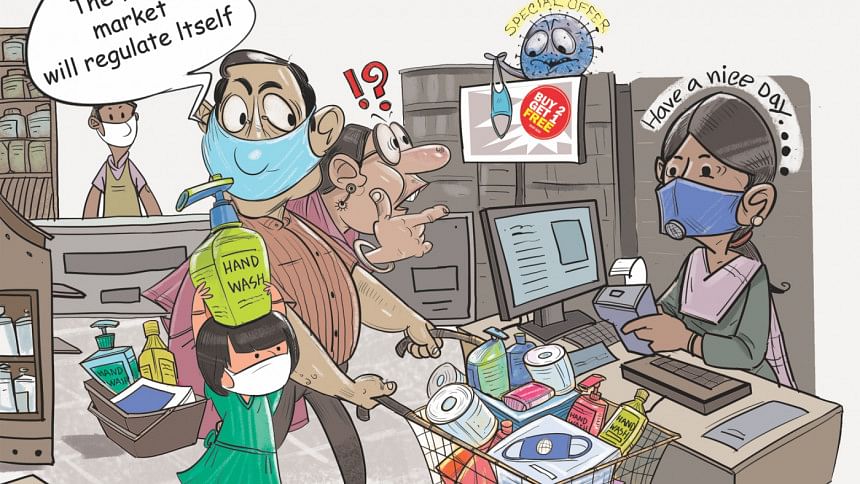Virus hits Emotionation

North Atlantic country Emotionation's population has dipped below critical mass, according to the latest survey conducted by the United Rations, published yesterday.
One of the most overpopulated countries on the planet till 2021, the start of its downward spiral into a population that cannot sustain itself any longer can be traced back to a virus -- DVD-22 -- that entered the country in 2020.
DVD-22 had unleashed a global pandemic that year, but it was surprising that Emotionation -- one of the less developed countries then, and only beginning to become a developing country -- was the 93rd to be infected as many as five months after DVD-22 had originated in the Thutni Kingdom.
PANIC, THEN HUBRIS
When the first cases of DVD-22 had been reported in Emotionation, it caused widespread panic among the populace, with masks and hand sanitisers flying off the shelf. DVD-22, for those who may have forgotten, was a highly contagious strain spread through touch and with an incubation period of 28 days. The panic was exacerbated by the fact that a first-world country like Catteland had been crippled by the virus just weeks ago, reporting nearly twice the average mortality rate of 3.5 percent of those infected.
But two weeks passed in Emotionation, and there were no more than two cases confirmed. Then, panic was somehow married with hubris. If that seems incompatible, consider the name of the country.
"We are a nation of people who are much hardier than our more developed counterparts… that is the other side of the coin of economic development. We have been raised amid mosquito-borne diseases, heavily-processed and artificially-coloured foods and fruits, so we won't be as at-risk as those of Catteland. Our people have also inhaled noxious fumes from the traffic jams -- we are one of the most polluted nations in the world, you know – and the bacteria-laden water we drink means our immunity is top-notch.
"The other aspect, of course, is that being a developing nation, we have a young population. And DVD-22 is much more lethal among the older population," said an editorial in a popular Emotionation newspaper, now defunct.
The editorial was written to calm the panicked, but it led to hubris. Politicians started talking about the DVD-22 being a winter disease, and with the hot summer around the corner, it was but a passing threat.
People relaxed, started shaking hands and touching faces again, but after the four-week incubation period, the effluence hit the rotor blades. New patients sprouted up everywhere in Emotionation, and worse still, having met the stiff resistance among the hardier populace, it evolved into what was later classified as BLURAY-28. Now it not only spread through touch, but through sight as well – specifically, any focused gaze longer than 15 seconds. The incubation period halved and the mortality rate doubled.
Forget hand sanitisers and masks, people were now scampering for sunglasses. But with the woeful wealth inequality, these preventive aids were soon out of circulation and the poor were left empty-handed. Furthermore, the other countries around the world completely isolated Emotionation in terms of travel and trade.
"If we were so hard-hit by DVD-22, what chance do we have with BLURAY-28," the then president of Catteland had said. "And we prefer our sunglasses strictly as a fashion accessory."
With sight being added as a medium of contagion, it was unsurprising that women were the most affected. It also started a gender war as women took revenge by ogling men, and of course the birth rate took a hit.
Emotionation remains one of the only nations who are worse off after the DVD-22 outbreak, which reduced global air travel for two years and slowed the rate of climate change.
While BLURAY-28 was eradicated -- or exhausted itself -- after taking a toll for three years, the distrust it brewed has remained to this day in Emotionation.

 For all latest news, follow The Daily Star's Google News channel.
For all latest news, follow The Daily Star's Google News channel. 



Comments